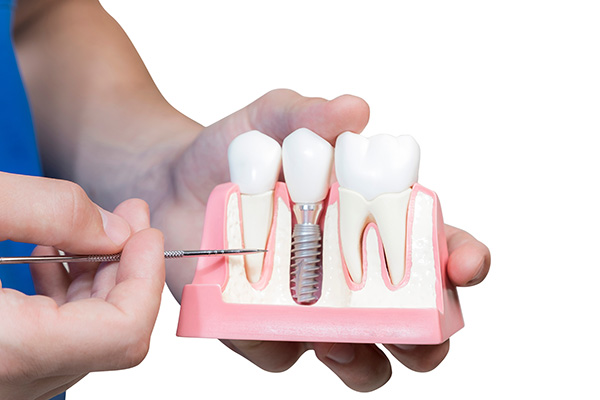Can Periodontics Improve Your Oral Health?

If you have ever had trouble with your gums, you may have seen a dentist with experience in periodontics. It is the treatment of disease that affects the gums and other structures around your teeth.
Dentists who study periodontics have comprehensive training in diagnosing, treating, and preventing gum disease. They spend three additional years in school beyond dental training.
What conditions are treated with periodontics?
A dentist who has completed additional training in periodontics can help you treat various conditions that affect your gums. You can also get treatment for problems that involve the ligaments and bones that support your teeth.
Gingivitis
In the early stages, periodontal disease is called gingivitis. Early signs include inflammation and redness in the gums around your teeth. You may also notice bleeding, especially when you brush. Gingivitis can be treated if you catch it in time.
Periodontal disease
Gum disease in its more advanced stages is called periodontal disease. Poor oral care can lead to plaque and bacteria buildup. The biofilm that the bacteria produces can go below the gum line and cause infection. The gums begin to pull away from the teeth as they form pockets that become infected.
As periodontal disease advances, it destroys gum tissue and bone. Your gums begin to recede, and your teeth may become unusually sensitive. You may experience bad breath or a foul taste in your mouth that does not disappear. It may become painful to chew, and your teeth may begin to feel loose.
Dental crown lengthening
The practice of periodontics also includes cosmetic procedures that involve the gums. Patients with excessive gum tissue around their teeth may choose to have a dental crown lengthening procedure. This treatment involves reshaping the gum and bones to expose more of the tooth.
Dental crown lengthening can also be done to prepare for a restorative procedure. The tooth may need more crown exposure to complete the process, and dental crown lengthening prepares the area.
Gum grafting
Receding gums may need grafting to cover exposed roots. A gum grafting procedure involves attaching tissue grafted from the roof of the mouth or a donor source. The exposed root is protected to prevent bone loss and further recession.
Dental implants
If you have lost one or more teeth, you may need dental implants to replace them. An implant consists of an artificial tooth root placed in or on the jawbone. A prosthetic tooth is placed on top of the artificial root.
Dental implants are sometimes used in place of dentures in patients with a healthy and adequate bone structure to hold the implant.
How can periodontics improve oral health?
Dentists who study periodontics know the latest techniques to treat gum problems. They can use various procedures to treat patients.
Scaling and root planing
In the early stages of gum disease, a deep-cleaning procedure called scaling removes plaque and toxins. The dentist uses special tools to remove tartar, plaque, and bacterial toxins above and below the gum line.
Root planing is the process of smoothing the tooth root to remove plaque and tartar. It also smooths rough surfaces that trap bacteria. Your teeth and gums can begin to heal from gum disease once the surfaces are clean.
Laser treatment
Another option for treating periodontal disease is using lasers that clean the gums and roots. The dentist directs a laser at the affected area, using the correct wavelength and power for the treatment.
Periodontal pocket procedures
When bacteria and plaque cause the gum to pull away from the tooth and form pockets, the dental professional folds the damaged tissue back and removes the infection. The dentist may smooth the bones to remove areas where bacteria can hide. The gums are then fit around the tooth again.
Regenerative procedures
When periodontal disease destroys the bone surrounding your teeth, your dentist may recommend a regenerative procedure. It involves grafting bone or using tissue-stimulating proteins to encourage the body to regenerate tissue and bone. If enough bone and tissue grow back, you may be a candidate for dental implants if necessary.
Extraction
Severe gum disease may lead to so much bone loss that a tooth cannot be saved. In this case, the dentist removes the tooth.
Conclusion
The practice of periodontics can revitalize your oral health. It can also restore your smile with dental implants. Regular oral hygiene is a good way to prevent gum disease. However, a dentist trained in periodontics knows the latest treatments for gingivitis, advanced gum disease, and other gum problems.
Request an appointment here: https://hemetdentalcenter.com or call Hemet Dental Center: Brian Stiewel DDS, INC. at (951) 707-4366 for an appointment in our Hemet office.
Check out what others are saying about our services on Yelp: Periodontics in Hemet, CA.
Recent Posts
Are you wondering if you have periodontal disease, more commonly known as gum disease? It is essential for you to know the warning signs of this common dental issue. This way, you will have a better chance of addressing the issue without needing excessive dental treatment.When gum disease is addressed in its beginning stages, it…
Periodontics is a dental specialty that deals with diseases of the gums and the bones that sustain the teeth. This condition can affect your entire oral cavity and overall wellbeing. Periodontics care is necessary when something is wrong with the gums.Gingivitis and periodontitis are the two prevalent types of periodontal diseases. Gingivitis is the early…
An oral surgeon can help improve your periodontal health through several different types of services. The most common reason patients need oral surgeon services for gum problems is because of gum disease. The oral surgeon can perform a type of deep cleaning on the teeth, which can remove the bacteria that cause gum disease. Read…
Wanting to understand more about periodontal disease? Also known as gum disease, periodontal disease is something that everyone wants to avoid. According to the Centers for Disease Control and Prevention, half of Americans aged 30 or older have periodontitis, the more advanced form of periodontal disease.Since periodontitis disease is directly connected to other general diseases,…


